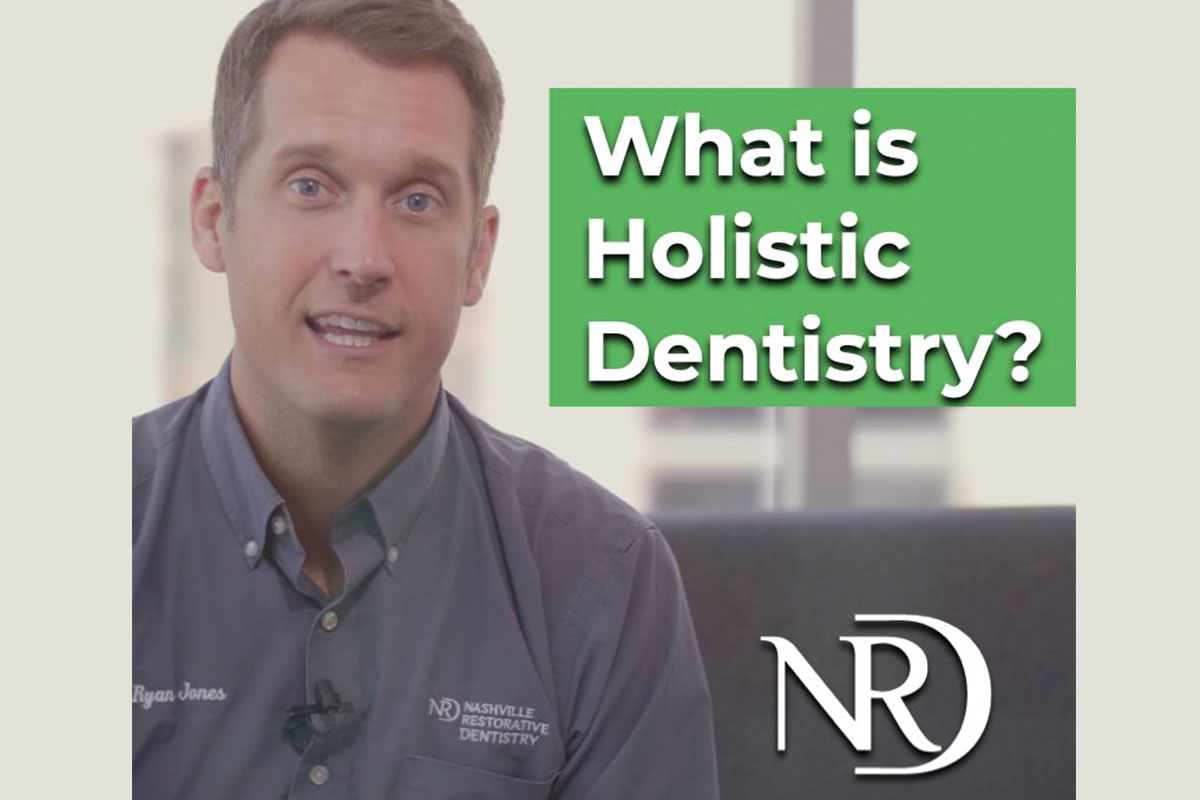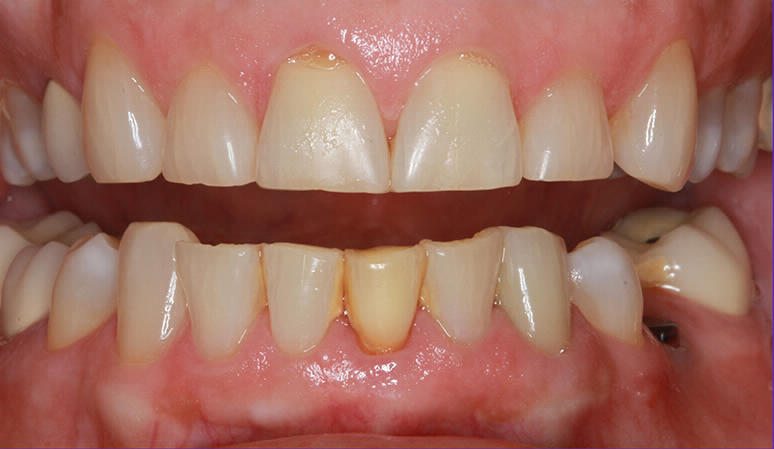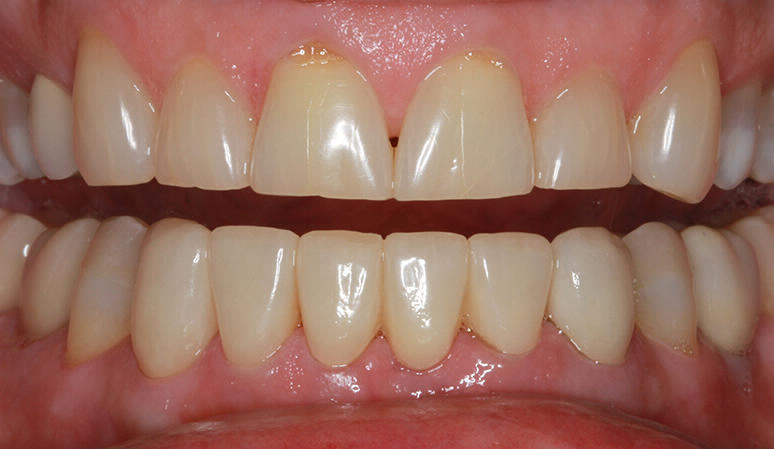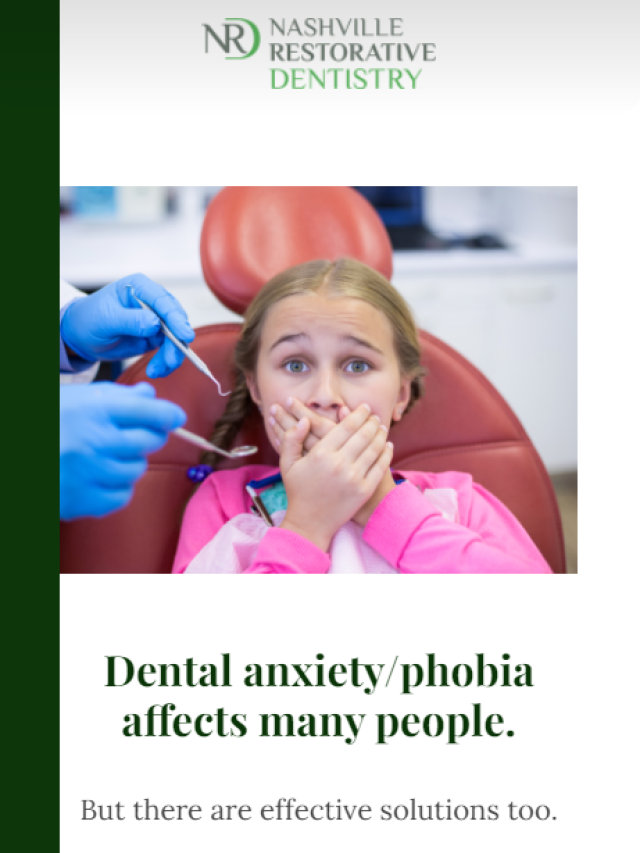
20
Jan
What is a Holistic Dentist?

Holistic Dentistry Explained
As a comprehensive care dental practice offering holistic-focused care, we often hear questions like:
- What is a holistic dentist?
- Why is holistic dental care important?
- How can I find a holistic dentist near me?
In this post, we will answer these questions by explaining how holistic dentistry differs from traditional dentistry, why holistic dental care is important for prevention, diagnosis, and treatment, and how you can find a holistic dentist in your area.
More focused on a cosmetic issue and don’t think this will apply? Don’t worry! We use the same focus on health and safety materials in our cosmetic dentistry services in order to keep your smile and body healthy.
What is holistic dentistry?
Holistic dentistry, also known as biological dentistry or integrative dentistry, focuses on the integral role oral health plays in a patient’s overall health. Instead of relying solely on conventional methods, holistic dentistry also incorporates natural or alternative treatment options into plans for prevention, diagnosis, and treatment. This whole-body approach focuses on the cause-and-effect relationship between patients’ oral health and their overall health.
Fearful of dental work? Learn about how we can use sedation dentistry.
What is the connection between oral health and overall health?
You may be surprised by just how much your oral health is linked to your overall health. This is because your mouth is an entry point for introducing bacteria and infections into the bloodstream, which can result in many health issues and chronic diseases.

Holistic dentistry may be a bit different from what you’ve experienced in the past, by taking a look at you as a whole, instead of just individual teeth, considering how your medical history or how any issues that you’re dealing with could be connected to problems you have in your mouth, looking at materials that are in your mouth and how that may be related to concerns that you have. A lot of times we’ll have patients come to us that are frustrated because they’ve just been brushed off when they raised concerns about things like mercury in their mouth, or fluoride use, either in them or their children. You deserve to be in a healthcare setting where your questions are respected, they’re responded to, and you’re not brushed off for being difficult or going against the grain. You need to be a part of your healthcare choices. You need to be empowered to make decisions that line up with what your goals are. And we want to create a safe place where that is addressed, and we’re coming alongside you to help you achieve the healthcare goals that are important to you.
When your holistic dentist evaluates your dental health, they will take into account any inflammation that may be negatively impacting your overall well-being, including gum diseases like gingivitis and periodontitis, as well as sources of chronic bacterial infections like abscessed teeth and failed root canals. The inflammation caused by these issues can be linked to a variety of health problems.
In fact, poor dental health has been found to contribute to a wide range of serious health issues, including cardiovascular disease, elevated blood pressure, increased heart attack and stroke risk, low birth weight or premature birth in pregnant women, and difficulty controlling diabetes.
Your dental health can also provide your dentist with valuable clues about potential overall health problems, with conditions like HIV, diabetes, Alzheimer’s disease, and osteoporosis commonly affecting oral health. Other conditions linked with oral health include rheumatoid arthritis, cancers of the head and neck, Sjogren’s syndrome, eating disorders, and even depression!
How does holistic dental care differ from traditional dental care?
Similar to traditional dentists, holistic dentists perform routine teeth cleanings, repair damaged or decayed teeth, replace missing teeth, and create treatment plans when needs arise. However, when approaching these practices, holistic dental practitioners aim to treat the causes of problems rather than just the symptoms. They do this by considering their patients’ overall health, mental well-being, emotional health, lifestyle, and diet while also treating the patient using the safest materials possible.
Risk factors of traditional dentistry
There are multiple risks associated with traditional dentistry that holistic dentists avoid when treating patients. Some of the traditional treatments that pose overall health risks for patients include using mercury in amalgam fillings, root canals, BPA in composite fillings, and many other materials and chemicals used in various procedures. Unlike traditional dentists, holistic dentists take into account the risk factors for a patient’s overall health when providing treatment and sometimes use alternative treatment options that do not pose the health risks of conventional treatment options when the patient agrees that is the direction of care they desire.
Amalgam
About 50 percent of traditional dentists in the United States still use mercury-containing dental amalgam in their practices. Most of us know amalgam as “silver fillings,” but contrary to popular opinion, amalgam is NOT made up mostly of silver, but rather from an alloy of metals containing 43 to 50 percent mercury. Mercury, a known neurotoxin, poses a variety of risk factors for the health of patients and dental workers, as well as the environment. It is especially dangerous when used in vulnerable populations, including young children and pregnant women.
Additionally, amalgam can actually weaken a tooth over time. This is often displayed by cracks or fractures that form in these teeth, which often lead to a cusp breaking off and a crown or extraction being required.
Although in the past it was thought that the toxic mercury was safely contained in the amalgam filling, more recent studies have shown that when individuals with amalgam fillings chew, their fillings actually emit low levels of mercury vapors that are then absorbed into the body. Mercury has been shown to be toxic, even in low levels of exposure, which can be especially dangerous for individuals with other mercury exposures or for dental professionals who are regularly exposed to this toxin. Instead of relying on this harmful and toxic material, holistic dentists opt for other filling materials that are more effective, like resin composites that are BPA-free.

We are concerned about the danger of mercury in dental amalgam fillings, quite simply because mercury is the most potent neurotoxin known to man. We know that the mercury vapor that off-gases from these teeth that are filled with those amalgams is something that accumulates over time. Now some people are healthy enough to where that doesn’t translate into tangible problems and other people aren’t, but why should we be trying to define a safe amount of a dangerous substance? I think there is a categorical problem with the fact that the Environmental Protection Agency limits what I do when I remove mercury from your mouth but the Food and Drug Administration does not limit me from putting it in your mouth in the first place.
What if I already have mercury fillings?
It’s common for people who have had dental work in the past to be concerned about the mercury that is in their mouths. Fortunately, there are procedures available to safely remove these fillings and replace them with a biocompatible option. During the mercury removal process, a strict protocol is adhered to in order to ensure the safety of the patient, doctor, and dental staff. This protocol involves the use of a HEPA filter placed near the mouth to suction off any vapors released, a rubber dam to prevent materials from getting into the mouth, copious irrigation and suction, covering of the patient’s body and clothing, an oxygen source for the patient to breath and antioxidant support with liposomal vitamin C and GI support with activated charcoal.
Biocompatibility testing & the use of non-toxic materials
When choosing dental materials that will be used for fillings, dental implants, or other common dental procedures, a holistic dentist may perform a biocompatibility test to discover which materials are the most biologically compatible with your body as a whole.
To test biocompatibility, your dentist will request blood work, which will then be sent to a lab for analysis against a variety of dental materials. After analysis, the lab will rank the materials based on their compatibility with your body so that you can avoid materials that may cause an adverse reaction and make an informed decision about which materials will have the least impact on your overall health.
If you are concerned about the use of metal or titanium materials used in traditional implants, your holistic dentist may suggest the use of zirconia implants, which do not have the potential side effects associated with the use of metals.
Fluoride
Anyone who has been to a traditional dental practice knows the importance placed on fluoride for the prevention of cavities. However, holistic dentists consider the overall health risks of fluoride—especially in ingestible forms—noting potential links to cancer and bone problems, as well as negligible benefits from ingestion.
In fact, too much fluoride can actually lead to fluorosis or discolored enamel. Although some holistic dentists agree with the use of topical fluoride treatments, some choose to avoid potential risks by avoiding them altogether.
When it comes to prevention, your holistic dentist will most likely recommend an anti-cavity toothpaste and other dental care products that are highly effective in preventing decay yet free of fluoride. A great option is CariFree CTx3 toothpaste which contains nano-hydroxyapatite to rebuild enamel, a high pH to resist the acidic environment needed to form cavities, and xylitol to prevent bacterial activity that leads to tooth decay. Oral probiotics are another wonderful preventative option as they work to rebalance the oral biome and minimize the destructive activity of cavity-causing bacteria.
X-rays
When it comes to the use of X-rays, many patients understandably worry about their exposure to radiation. However, the benefits of detecting cavities and infections early on are usually worth the exposure. When x-rays are necessary to detect potential issues that are not visible to the naked eye, your holistic dentist should take the minimum number of images needed to accurately diagnose any potential issues and opt for digital X-ray imaging, which drastically decreases the amount of radiation exposure.
Root canals
Although a traditional root canal may be the quickest and most effective fix for tooth pain or infection, it is not always the best option for every patient. Even when treated, root canalled teeth sometimes remain infected and harbor bacteria that can enter the bloodstream and lead to a variety of health issues.
Actual Patients Results


Barbara

Issue: A broken and discolored lower front tooth with an infected root canal was becoming symptomatic and she did not like the appearance of it. Consistent wear and chipping across the tops of the front four lower teeth was also becoming concerning.
Solution: A diagnostic plan was put in place to functionally change the way her teeth bite together, eliminating the cause of the lower wear and chipping. This involved making her back teeth taller with conservative bonded onlays and restoring the implant on the lower left. The discolored front tooth was then extracted and a bridge and new crowns were placed to restore the cosmetic appearance she desired.
A holistic dentist considers these risks as well as the patient’s dental health, overall health, and immune system when deciding whether to perform a root canal, which could incorporate ozone gas or water or different filling materials than standard root canals. They may also use 3-D imaging if they are concerned about an infection or abscess to pinpoint if there is a need for extraction or a root canal. If, after evaluating your overall health, your holistic dentist does not think that a root canal will be the safest treatment choice, they will most likely propose an extraction as a safer alternative. The tooth may then be replaced with an implant, bridge, or partial denture if a patient so desires.

We get a ton of people that come to us concerned about root canals and there is some good information and a lot of bad information that you’re going to read on the internet. So let’s start at the beginning. There’s two main reasons a tooth can need a root canal. One is an alive tooth that is sick. The nerve is inflamed. Either a bad cavity or trauma has created a hyper response or spontaneous pain, so cold or hot really hurts and lasts for a long time. Or you lay down and go to bed and the tooth throbs on its own. That’s an alive tooth. That is not going to get better on its own, but it’s not infected. It’s still alive. So there’s no bacteria problem yet in the nerve of the tooth. The other reason a tooth can need a root canal is the nerve is already dead. So there’s no blood flow to the tooth. The nerve doesn’t function. It can’t feel hot and cold, but there’s an infection at the base of the root of the tooth in the jaw bone, called an abscess that we’ll often find on a CT scan — a 3D image of the teeth in the jaws where we can identify any sources of infection, like, abscessed teeth. So, a root canal is a procedure that removes the either inflamed or dead blood supply and nerve inside the root of the tooth. All right, so we can be treating pain or it can be trying to treat infection. Your tooth and the roots are still there, but the vitality is removed from inside. So if a tooth is infected, it may heal. We’ve removed a lot of the bacteria from inside the tooth, but we can’t remove all of it. So, sometimes, we’ll see non-healing or something that gets better for a while, and then we’ll see an abscess return later. So unfortunately, no one can guarantee that an infection is removed by doing a root canal. A lot of times, it works, but there’s always the risk and we don’t know how much bacteria is still in the tooth, potentially, creating a subclinical level of residual inflammation, or systemic effect, without creating an actual visible abscess. So, unfortunately, the only way to give someone certainty that the bacteria and the infection are gone is to remove the tooth. If that tooth is extracted, we know the bacteria is dealt with. We know the infection can’t recur, we know that it can’t erode or destroy more bone and then we begin the conversation of, “What, if anything, do you want to do to restore or replace that missing tooth?” Our first line of choice is always going to be a dental implant because it’s replacing the one thing that we’ve lost. Something like a bridge can be an option, which is a crown on either side of the missing tooth and all three teeth at that point are connected. The downside there is if you have healthy neighboring teeth, you’ve now just ground all the enamel off of them to replace one missing tooth that those two teeth had nothing to do with. Furthermore, if anything goes wrong with that bridge, or the neighboring teeth. Now, you potentially lose an additional tooth or have to replace a whole bridge. So, a implant side steps increasing the risk, or letting that problem potentially snowball down the road. The other two choices for replacement are making something removable that you can take in and out that makes it look like you’re missing a tooth, or not missing a tooth rather, or you simply leave a missing space there, which is not a great treatment choice but is always an option. So hopefully that clarifies some of the questions that you have about what is a root canal, why is it needed and what can I do to avoid one.
Holistic dentistry and gum disease
Periodontitis, or gum disease, is a particular focus for the holistic dental community. More than anything else in the oral health field, gum disease has been linked to an increased risk of a staggering number of medical issues. Most commonly cited among these are cardiovascular disease, heart attacks, and stroke, but they can also increase the risk of hypertension and even the chance of a miscarriage.
There are many stages of gum disease. Most cases are mild but, without treatment, can get worse over time. Symptoms at the beginning may be gums that just bleed a little with no pain or discomfort. However, as periodontal disease becomes more severe, the inflammation will cause bone loss, more noticeable bleeding, and potential tooth loss.
When a patient comes in with gum disease, holistic dental practices will create a multi-step plan to treat and manage it. The first step will be to stop the infection that creates bleeding gums and get them back to a healthy state. This is done through a combination of professional ultrasonic instrumentation, the use of ozone gas and water, and specifically chosen rinses, essential oils, and homeopathic options. Following initial treatment, a customized preventative maintenance plan will be created to preserve continued oral health for the long term.

The two main components that we’re looking at when we’re evaluating what’s going on in your mouth that can negatively affect your overall health is gum disease and infected teeth. So Gum disease can have two different components: Gingivitis and Periodontitis. Gingivitis is reversible inflammation of your gum tissue that is caused by the bacteria and plaque. It creates inflammation which leads to bleeding, but it’s reversible which means we can make it go away and there’s no long term damage that’s taken place. Periodontal disease is where you’ve actually lost bone. That infection has progressed. It’s been more longstanding or more aggressive in its destruction. So when we look at X-rays of the teeth we see that bone levels have receded. So you’ve lost anchoring support that keeps your teeth stable.While that in and of itself is a concern, the bigger issue is that inflammation caused by the bacteria that creates the disease is entering your bloodstream. So whether it is gum disease, whether it is infected teeth that are actually abscessed, bacteria is at the root of all of that. The bacteria is getting into your circulatory system. So when you see all the headlines about how gum disease is connected to cardiovascular disease, heart attack risk, stroke risk, type 2 diabetes, certain types of cancer, Alzheimer’s disease, all the litany of research that is coming out right now is connected to how that infection is creating chronic inflammation and inflammation is the key to all of this. So treating gum disease is really about ridding our bodies of inflammation just as much as it is about making our mouths themselves healthier.
The ways to treat gum disease depend on which type of gum disease you actually have. Gingivitis is a reversible inflammation of the tissue that is really just based on plaque staying along the gum line. So, regardless of whether you’re using certain types of toothpastes or rinse, it really comes down to removing that biofilm consistently. As that plaque goes away, the tissue is going to heal, the inflammation is going to go away, the bleeding is going to stop and there won’t be a continued destructive nature to the disease. Gum disease that has transitioned into Periodontitis where we’ve seen bone destruction and attachment loss from the tissue, that treatment is going to be more involved. And there is different levels of severity of it, but more or less your treatment is going to consist of having in-office work done as well as what you’re doing at home. So in the office we’re using ultrasonics, lasers, ozonated water, different ways to disrupt the buildup of bacteria and biofilm below the guideline. At home, you’re going to be using electric toothbrushes, water picks, flossing, certain types of rinse or gel products that are usually going to contain an essential oil or be peroxide-based to be disrupting the bacteria while you’re in between visits. But the connection between your in-office and at-home recur program are going to be important because you can’t keep periodontal disease from being destructive just by going to the dentist. You can’t just do it at home. There’s got to be a teamwork focus between you and your dental care provider to keep that inflammatory process in remission so you’re not continuing to experience destruction of bone levels, bleeding of gum tissue or the inflammation that results from it.
Holistic dentistry & oral surgery
Whether you are having wisdom teeth removed, an infected tooth extracted, getting an implant, or having dental cavitation treated, it is important that your dentist considers the effects that the procedure will have on your body as a whole. Since holistic dentistry considers the effects of dental health on overall health, your holistic dentist will most likely employ some alternative treatments and therapies when you undergo surgery to ensure the best overall outcome. Two commonly used techniques include ozone therapy and the use of platelet-rich fibrin.
Ozone Therapy
Ozone therapy is commonly utilized by holistic dentists when treating infected teeth, during surgical procedures, or performing root canals to decrease the number of bacteria present in the tooth or surgical site. Since it is both antibacterial and antifungal in nature, ozone gas is a highly effective method for cleansing and reducing the risk of infection.
Platelet-rich fibrin
If you are having a tooth removed or a grafting procedure, your holistic dentist may also use platelet-rich fibrin (PRF) to assist in the quality and speed of healing following your surgery. This procedure involves drawing blood from the patient before the surgery, which is then centrifuged to form PRF. The PRF can then be placed back into the surgical site. The use of PRF has been found to have a number of benefits, including a decreased risk of infection, minimized pain following surgery, and an accelerated healing time.
The importance of holistic dentistry for children
Since children are especially vulnerable to the use of harmful chemicals used in traditional dental practices, such as dental amalgam, it is important to find a dentist that will focus on your child’s overall health and wellness when providing dental care. In fact, the dental care your children receive while they are young can affect their overall health for years to come, which is why choosing a provider that has their long-term well-being in mind is important.
A holistic dentist will focus on using conservative and minimally invasive treatment options, keeping your child’s emotional and physical health in mind. They will also avoid the use of potentially hazardous materials when creating treatment plans and rely on the use of non-toxic materials when treating cavities and infected teeth.
X-rays are important in identifying tooth decay and treating it before it becomes an issue. However, holistic pediatric dentists weigh the risks and benefits of x-rays before recommending them to minimize your child’s exposure to radiation. Although x-rays may be the only way to detect tooth decay in certain circumstances, holistic dentists may opt to avoid x-rays by inspecting baby teeth with transillumination, which can expose tooth decay to bright light. They will also consider your child’s previous medical history and issues with tooth decay to decide if the benefits of an X-ray outweigh the risks. Holistic dentists also tend to opt for digital x-rays, which minimize radiation exposure.
Perhaps the most important aspect of pediatric care is to monitor the growth and development of the child and ensure that no habits or dental problems lead to an increased risk for breathing problems and apnea down the road. Orthodontics or appliances to better position teeth and widen narrow jaws and myofunctional therapy are all treatment considerations that your holistic dentist might discuss regarding your child’s care.
How to find a holistic dentist near me
The number of biological dentists has increased in recent years as patients increasingly recognize the connection between oral health and their overall health and seek dental care that considers this.
If you are looking for a holistic dentist in your area, we suggest using the Holistic Dental Association’s “Find a Holistic Dentist” tool or the IAOMT’s search tool, which allows users to search by state or region.
Looking for a holistic dentist in Nashville or Franklin, TN?
Dr. Ryan Jones, Dr. Caleb Estes, and the Nashville Restorative Dentistry team are here to provide excellence in all dental care aspects. They provide mercury and metal-free dentistry, zirconia dental implants, and many other whole health-focused dental services. Contact our family dentist office today to learn more about our holistic dentistry services in Franklin, Brentwood, Nashville, and the surrounding area.
If you’d like to schedule an appointment or ask us any questions, we’d be pleased to serve you.
We are equipped to handle the majority of your dental needs
We understand the importance of having a dentist you can trust. And that means not being sent to a different specialist every time you need a new procedure. At Nashville Restorative Dentistry, we are equipped to handle the majority of your dental needs, from cosmetic to restorative, implants to extractions. When you come to us, you are getting a dental team for life.
Share this Article
Experience excellence in dental care today.
You shouldn’t have to worry about your mouth or let unpleasant past dental experiences prevent you from living the life you want.
Reviewr Name
Michelle W.
Patient Testimonial
Issue: Spacing between the front teeth and an uneven tilt to the smile.
Solution: Short term orthodontics to evenly spread out the space between the teeth followed by veneers across the eight front teeth to create a level smile with color consistency and no spaces.







